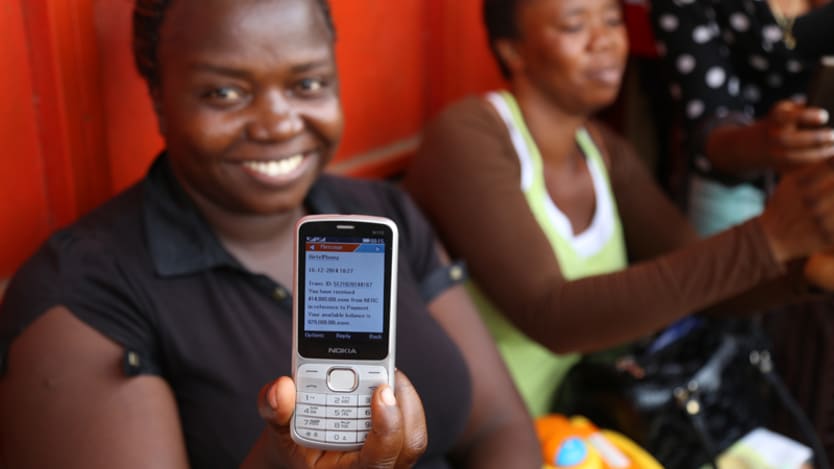
Crises of all sorts, from conflicts to natural disasters to health emergencies, are happening at unprecedented rates around the world — so much so that the United Nations convened the first World Humanitarian Summit this week. There is increasing recognition that the sheer scale of the humanitarian challenges facing the world today means that governments such as ours have to be prepared for future shocks, by laying the groundwork for more inclusive and resilient economies.
In our experience battling the Ebola virus in Sierra Leone, one solution saved lives, delivered major cost savings, and continues to help the economy rebuild and recover. For many, this solution is so simple and logical it is almost unexpected: digital payments.
When we digitized compensation for Ebola response workers, we reduced payment times from a month to a week, as a new study by United Nations-housed Better Than Cash Alliance has revealed. Getting payments to workers on time reduced fraud risks and increased efficiency and transparency.
“It is critical to start building resilient response measures now; therefore, we must put in place the policy frameworks, infrastructure and public education initiatives necessary for a digital payments solution.”
— Momodu L. Kargbo, Sierra Leone's minister of finance and economic developmentPrior to the deployment of digital payments, our response workers often had to travel long distances out of treatment and holding centers and spend scarce financial resources to access payment. Beyond addressing these challenges, digital payments broadened financial inclusion and enabled more citizens to participate in the formal economy, build up their own savings, invest in their business and access new markets.
The significant lesson is that government is leveraging on the 95 percent mobile phone access and coverage across the country coupled with a robust national network to intensify action and support to payment agents. This infrastructure proved essential in deploying digital payments during the crisis.
Notwithstanding these advantages, we realized there is more to be done, and these lessons offer insights to us and others for future crises.
Building partnerships with the private sector and development organizations is key for us to succeed. These networks, infrastructure, and expertise can help deliver digital payment solutions much faster and help sustain the adoption of digital payments platforms after the emergency ends. As a member of the g7+ countries — an association of countries that are or have been affected by conflict — Sierra Leone is committed to engaging in partnerships.
It is critical to start building resilient response measures now; therefore, we must put in place the policy frameworks, infrastructure, and public education initiatives necessary for a digital payments solution.
By working collaboratively and proactively, digital payments can help build resilience in the face of challenges such as those we encountered in the Ebola crisis, can contribute to greater financial inclusion of citizens, and can drive economic opportunities throughout the country in the aftermath.
Following the World Humanitarian Summit, Devex — along with its partners Deloitte, Ericsson, United Nations Development Programme, and United Nations Office for the Coordination of Humanitarian Affairs — have come together for #ShareHumanity. This six-week online conversation explores the role the private sector plays in humanitarian relief efforts, preparedness and response, both now and in the future.
Use #ShareHumanity and tag @devex to have your say.








